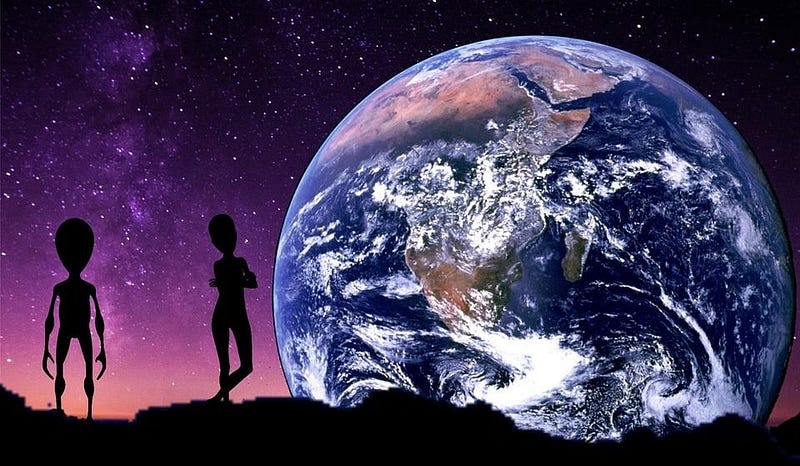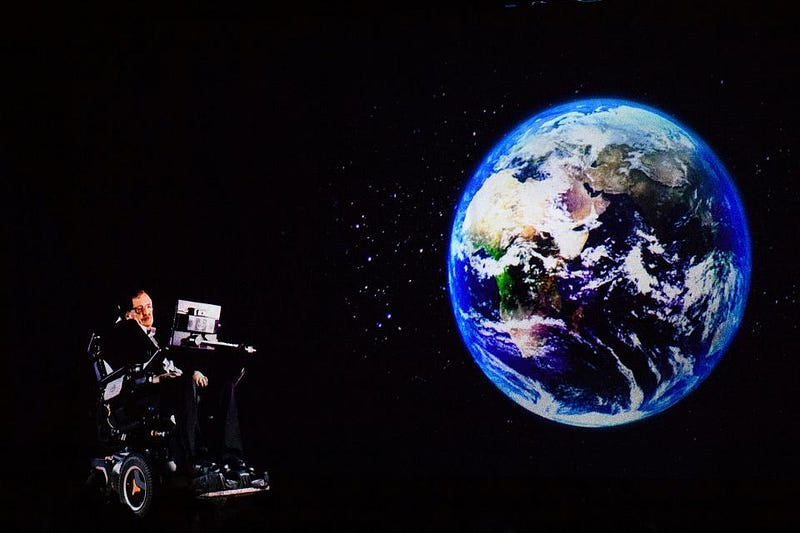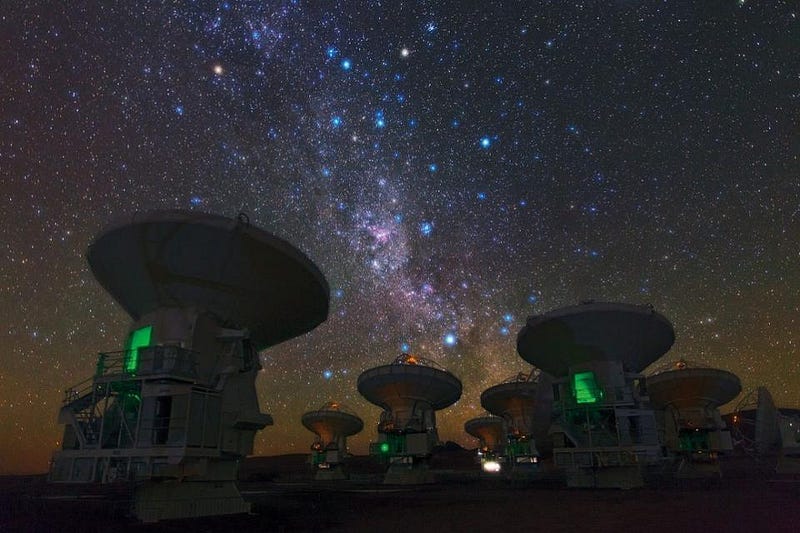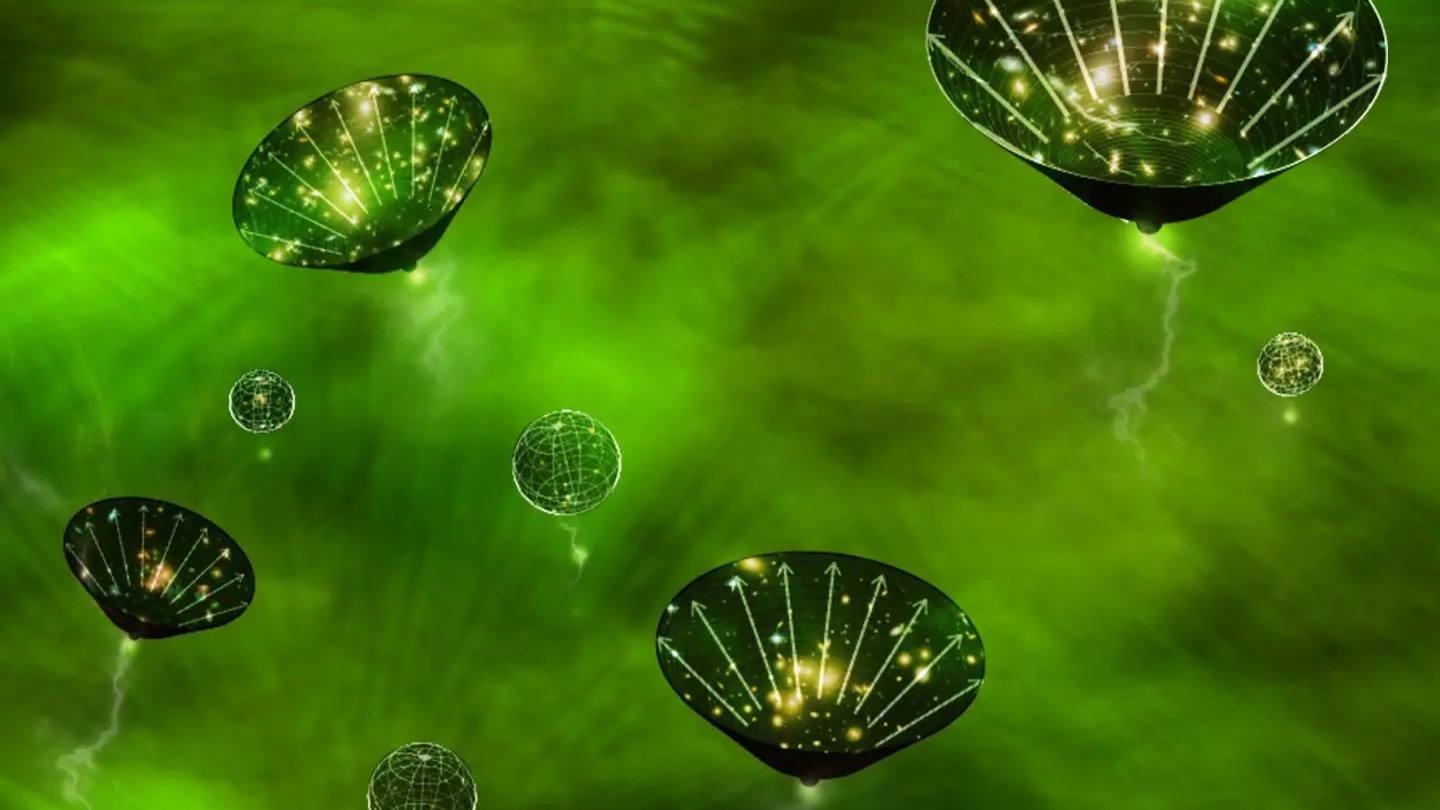Afraid Of Aliens? The Science Doesn’t Back You Up

Our most common fears of the “other” extend even into outer space. Here’s why those fears are baseless.
“Man has gone out to explore other worlds and other civilizations without having explored his own labyrinth of dark passages and secret chambers, and without finding what lies behind doorways that he himself has sealed.”
–Stanisław Lem
Imagine what it would be like to come across an intelligent, alien species that found us and came to Earth. From War of the Worlds to Independence Day, the overwhelming majority of alien depictions are of malevolence, violence, and the destruction of any galactic competitors. Whether they enslave us, destroy us, or devour us, our fictional view of aliens shows them as hostile, selfish, and with complete disregard for humanity. From Elon Musk to David Brin to Stephen Hawking, many fine human minds fear exactly this fate. Yet there’s no evidence at all that there’s any malevolence to aliens. In fact, for the evidence that does exist, hiding our presence from aliens may be the worst decision humanity could possibly make.

There are three possible scenarios regarding intelligent, spacefaring aliens, assuming their existence:
- Either they have no interest in making contact with another intelligent species,
- Or they do have interest and their intentions are benevolent/benign,
- Or they have interest and their intentions are malevolent.
The first possibility seems the most unlikely. What other reason is there to actually be a spacefaring species, if you’re not interested in contacting whatever other species might be out there? Nevertheless, if they’re not interested, there’s no reason to believe they’ll come for us.

The second possibility is a little more intriguing. Imagine a benevolent or benign spacefaring alien species, akin to the Vulcans from Star Trek. If they’ve figured out how to successfully traverse the distances between the stars, then they have technology that’s at least hundreds of years beyond our own, and potentially thousands, tens of thousands or more. We have enough problems on our world figuring out how to manage our own planet, and we have the resources of an entire world, a solar system, and a massive, energy-giving Sun. For a species to come as far as an intelligent, spacefaring alien would have come, they must have figured out a solution to a whole slew of problems that humanity clearly still grapples with. Meeting a civilization such as this could only have positive outcomes for our own.

But the third possibility is the source of all our fears. It’s encapsulated by statements by Brin, Peter Watts, and Hawking:
“The worst mistake of first contact, made throughout history by individuals on both sides of every new encounter, has been the unfortunate habit of making assumptions. It often proved fatal.” -David Brin
“…if the best toys do end up in the hands of those who’ve never forgotten that life itself is an act of war against intelligent opponents, what does that say about a race whose machines travel between the stars?” -Peter Watts
“If aliens visit us, the outcome would be much as when Columbus landed in America, which didn’t turn out well for the Native Americans. We only have to look at ourselves to see how intelligent life might develop into something we wouldn’t want to meet.” -Stephen Hawking

Based on our own behavior, of course, we’d have reason to fear aliens. If they’re anything like us, with a history of disregard for lives, societies, and civilizations that differ from our own, our fears would be legitimately justified. Whatever they want from us — our planet, our natural resources, our oxygen, our minds — it’s highly likely we’d be unable to defend ourselves against what’s likely to be their overwhelmingly superior technology. If they were hostile to humans, or indifferent to our lives but interested in something present on our world, there might be no way at all to save ourselves. It might be humanity’s demise.

That’s exactly the fear that many among us possess. But is that fear based in reality, and is that a legitimate reason to not send our messages, spacecraft, and information to the stars beyond our reach? Absolutely not. Let’s imagine the possibilities. If aliens wanted natural resources like rare elements, they’d be best off visiting a planet made out of those elements; there’s no advantage in coming to Earth. If they wanted molecular oxygen, they’d likely have the astronomical technology that’s already on the horizon for the 21st century here on Earth: to search for those molecular signatures in exoplanet atmospheres. In fact, if they were interested in inhabited worlds at all, even if the goal were simply to wipe them out, they would be able to use techniques and technology that we’ve already envisioned to systematically find them.

If someone were truly interested in finding Earth for any of its physical or biological properties, they could do it remotely. Moreover, they could do it remotely in a far easier fashion than they could send a spacecraft across the vastness of space to reach us; if they can do the latter, no doubt they can do the former. We are already planet-finding, learning how to measure their properties, figuring out how to search for life, elements, atmospheric content, and much more. If intelligent, spacefaring aliens exist, their astronomy skills and capabilities should far outclass our own.

In other words, if you’re looking for a world to harvest resources from, and Earth is a good fit, you’re going to find us irrespective of whether we’re advertising our presence. Any message that announces “we are here” will serve as old news to anyone interested in finding us for any reason other than desiring to make contact with another intelligent, self-aware, technologically-advanced species. Unless another species is legitimately curious about intelligent life in the Universe, there’s no reason for them to respond.

There are so many questions we are striving to learn the answer to; questions that we are only even beginning to pose well. And yet, to survive a long-term space journey, any alien race must have already figured out an answer to these and many other questions. The two big ones that I want to ask are these:
- We have evolved to be selfish hoarders, always hungering for more, and to expand beyond the means of our resources. How did you overcome the limitations of your evolution?
- The resources available to plunder on our planet are limited, and it is almost unimaginable to imagine surviving a long amount of time (many years, at least, but probably many generations) without any power source at all! But you did it. What was your solution to your energy needs?
The possible benefits to humanity of making contact are immeasurable. It would be like receiving a great galactic teacher, advanced thousands of years beyond our own scientific and technological capabilities. It would be the ultimate cultural exchange ever experienced on Earth. But the fears we have, that consume us, that lead to us eschewing the greatest cosmic achievement humanity’s ever dreamed of? They’re simply not based in science, logic, or reason. Thankfully, our fears don’t have to control our destinies. We can choose to use our minds instead.
Ethan Siegel is the author of Beyond the Galaxy and Treknology. You can pre-order his third book, currently in development: the Encyclopaedia Cosmologica.





